A collaborative approach to diversity
In summer 2019 The North Face funded a partnership between Lindley Educational Trust, Shadwell Basin Outdoor Activity Centre and The Outward Bound Trust, to trial a new 12 month outdoor leadership course for young people from Black, Asian, Minority Ethnic (BAME) backgrounds.
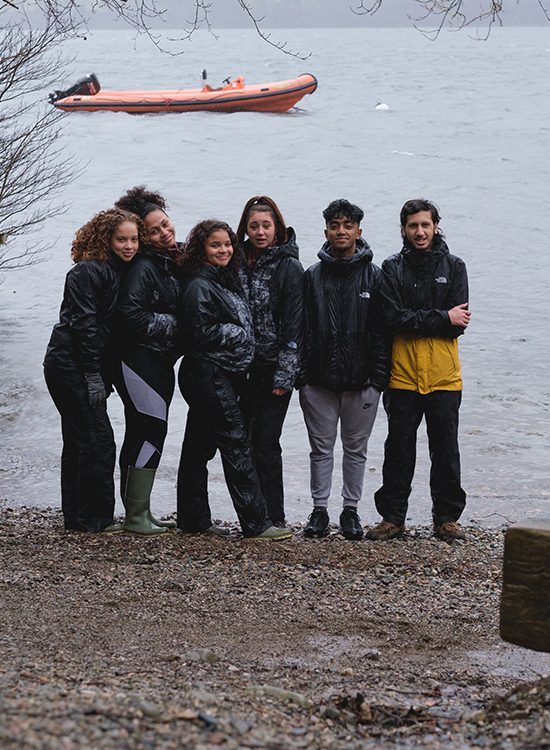
The aim of the partnership is to create a variety of leadership opportunities in order to support the development of BAME role models in outdoor leadership. This is to enable participants from these backgrounds to see more people they can identify with during their time in the outdoors, thereby increasing the impact and encouraging further participation.
This article, written by Kate O'Brien from Outward Bound, was first published in the Institute for Outdoor Learning's Horizon magazine. It explores the need for the course and what has happened so far. It was written collaboratively and uses the voices of the young leaders involved, which have been captured through interviews.
Facts and challenges with representation
Around 14% of the population of England and Wales are from BAME backgrounds, in Scotland this is 4%. The figure is higher for the under-16 population, and is increasing steadily. Approximately 15% of young people who visit Outward Bound centres come from a minority ethnic background. In contrast, at the time we started out on our diversity project, Outward Bound didn't employ anyone from this background. Also, stats from the outdoor sector show that only around 1% of Summer Mountain Leaders and Rock Climbing Instructors in the UK are from a BAME background.
Recent Sport England research identifies the six themes of language, awareness, safety, culture, confidence and perception of middle class stigma as barriers to participation in outdoor activities for people from an ethnic minority background. Many of these were elaborated on in the words of participants in the Young Leader’s course:
I think like water sports is like a sport for the rich or white people, so if you don’t break down that stereotype you’re not really going to get anywhere with anybody else, because that’s all everybody ever thinks.
“I think it’s a ethnicity thing too, I feel like if I were to tell a British white person [that I do outdoor activities], they probably have an idea of what it is, they probably do walking and things like that, but if I were to tell people of ethnicity that I was doing it, they have the view that it’s not cool. Their families aren’t people who... well, people I know who are of ethnic minority, aren’t encouraging or don’t have the means to find outdoor activities.”
Whose responsibility?
Some of the young leaders touched on the dual responsibility of people from BAME backgrounds choosing to get involved but also the role of the outdoor community in making it a welcoming space to come to:
“It is because people don’t get involved in it enough... it’s also that the people that are there [in the outdoors], they don’t sort of give you a very warm welcome to get into it as well, it takes both to meet in the middle.”
This highlights what can become a challenging cycle to break: increasing representation requires more people from BAME backgrounds to choose to get involved, but choosing to get involved requires knowing and feeling it is an option available to “someone like you”.
We can live in a bit of a bubble of what our 'normal' is, dictated by family culture, peer groups, messages within society and the media. New choices can become more readily available when we are exposed to new opportunities, new ways of seeing the world and what is possible. One participant describes how her experience on the programme caused her to question the status quo:
“When we were there, I was questioning, why is it only us, there should be more of us that are going into the outdoors, as in like Asian, ethnic minority backgrounds and stuff like that, like why isn’t there more of us in the outdoors? It is something that’s looked down upon in that sense that it’s not something that we’re [Asian females] used to doing a lot… For other people to say you know what, it’s alright, [it makes you think] why can’t we do that?”
Another participant goes on to highlight the role of opportunity to see things differently:
If you don’t have people around you, trying to encourage you to try and do something that’s not regarded as ‘normal’ in our community, you’re not going to do it.
What are we doing and why?
Sport England's research suggests that the majority of people from an ethnic minority background in the UK live in an urban environment, and are unlikely to pursue a career which falls outside of cultural norms without significant and progressive opportunity. Several of the participants spoke of the family pressures:
“I think most, especially Asian parents see it as a waste of time, you should be studying or revising or getting your degrees, stuff like that – qualifications, in other subjects where it’s more, like maths – that’s really like highly regarded, whereas outdoors it’s like, you know what? You can go on a walk; you can do that any day.”
“I suppose if you think about it, our parents were like immigrants, so they’ve come here because they’ve had a pretty tough life back home, so for them, money is a big thing and sometimes the only thing because sometimes they want to provide for their families, or they want an education because they didn’t get an education in Pakistan, it’s a bigger picture, whereas for us it’s really frustrating because we’re like, why can’t I do something I enjoy or I might make less money but I’m going to enjoy it for the rest of my life, but for them, work really hard right now and get a well-paid job and you’ll be sorted for the rest of your life.”
With this context in mind we designed a series of linked interventions to support a sustainable and realistic outdoor leadership pathway for young people who already had some interest and motivation, as well as some supports in place within their community, family and/ or local organisations.
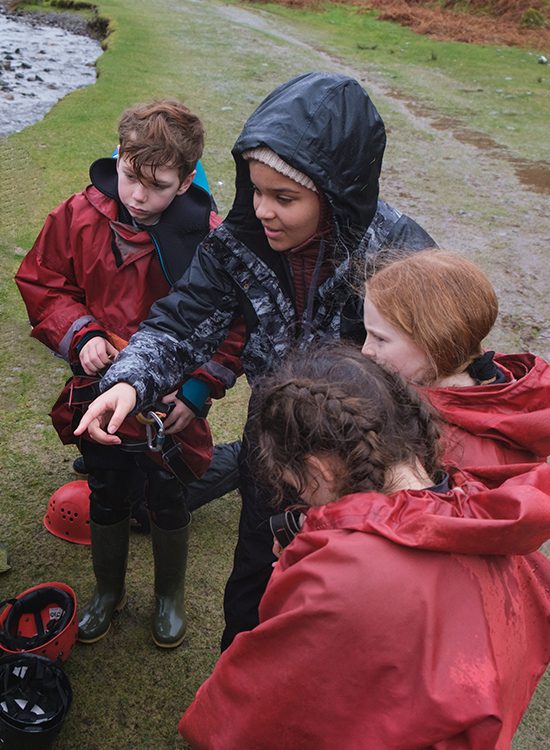
While Outward Bound had the desire and funding from The North Face we had no real experience in this area. In contrast Lindley Educational Trust have one of the most ethnically diverse staff teams with 25% of instructional staff coming from a BAME background, having been engaged in focused community work for a number of years. Similarly Shadwell Basin Outdoor Activity Centre work in an ethnically diverse borough of London, developing participants over several years, including within their coaching programme. Together we have tried to utilise the strengths of each organisation's approach and location to provide opportunities and networks for people from BAME backgrounds interested in becoming leaders of outdoor learning, recognising that this sector-wide under-representation is not one that can be easily shifted in isolation.
A mentor perspective
Rehna is a Youth and Community Worker at Lindley Educational Trust. These are her words...
I am a 26-year-old British Pakistani and for me the outdoors just wasn’t something that we got involved in throughout my childhood. We didn’t go for walks like your average white family or go to a climbing wall, etc. I first got involved in the outdoors through a youth club I attended as a teenager. My youth worker at the time encouraged me massively to get involved. He took us to the climbing wall, we went on mountaineering trips, took part in the Three Peaks Challenge and went to Morocco to climb Mt Toubkal. I had a huge role model at the time which helped my engagement so much. Having someone from the same background, financial situation, culture and religion, etc., encouraging me to enter this whole new world is where I found my passion for the outdoors.
Fast forward nine years, I am leading our youth and community project, which enables me to become a role model for many young people within our community. I think when people see someone they can relate to it’s somewhat reassuring to them - that’s how it was for me anyway!
Being a mentor on this course has been a privilege. Building and maintaining relationships and rapport with the young leaders, being someone they can come to at the time of need, even things like helping them fill out a DBS form before their ambassador week, has just been wonderful. Having six young people from BAME backgrounds receiving opportunities that they possibly wouldn’t have otherwise, is life changing. I think our young people have benefitted so much from being on this course. They’ve increased confidence, met new people, been to new places and have then become ambassadors within the wider community. For a group of 15-18-year-olds that’s inspiring if you ask me!
Other young people have seen this lot in their The North Face kit, or seen us waiting at the train station as we were setting off for Ullswater and it really makes them want to be part of something similar. It makes them think “if so and so could do it and they come from …, then why can’t we?” Especially when these young people may have come from situations which aren’t exactly the easiest.
Helping parents understand certain parts of the course and why we were doing certain things was a challenge at times but could have been much more difficult if they didn’t already know me and my intentions. Some parents actually said, I’ll only send them because I know you’ll be there and that is reassuring, “I trust you”. I think that’s a big deal, knowing that you’re basically the reason for making it happen for these young people.
The only certainty in life is change
The COVID-19 pandemic has certainly brought extra challenges, but also the opportunity to adapt and put some of the skills from the leadership programme into practice. Here's how Lindley and Shadwell Basin have responded...
We have seen young people particularly struggle due to this crisis, whether through lack of structure, not seeing friends or not being able to come to youth club. Lindley very quickly came up with an alternative service plan, ranging from online meetings and engagement to detached youth work out in the community. Lindley along with a partner, Active Communities Network, decided to do some work on upskilling young people around COVID-19 so they can then act as ambassadors within the community. So that is what we did with our young leaders. We have met with them remotely every week to discuss certain areas. We got health professionals on these calls and the group came up with some wonderful questions. Siblings and parents also engaged. We have set them up with infographics and lots of info and they now feel they can help educate the wider society, their friends and families.
Shadwell Basin Outdoor Activity Centre altered the way they connect with young people at the outset of the lockdown. They have met weekly with a set agenda which includes Motivation & Leadership, Priorities & Scheduling, Healthy Lifestyle and quizzes which are designed around the syllabi’s set for the eight adventurous activities on the Shadwell Pathways scheme. The group have also been given an Outdoor Adventure leadership study book template whereby they research the topic heading and add content and resources which they can use in their leadership roles in the future. Lockdown has not stopped the group’s development entirely but has given more time to develop in new and different ways.
Towards a new normal
Although the outdoor leadership elements of the partnership have had to be put on hold for the moment, the young leaders have been able to remain connected with each other and their mentors. We are doing an ongoing evaluation of the programme and will share more on the impacts in due course. What has become clear to us through developing and working on this programme is that change requires doing things differently, listening to different perspectives and collaborating in new ways.
Structured opportunities can support the development of more role models from BAME backgrounds within outdoor learning which we hope will lead to a positive spiral of participation and better understanding of provision of welcoming, and meaningful experiences for all in the outdoors. Inclusive and enabling opportunities for all will be even more important as we all adapt to the new possibilities opening up as the new normal unfolds.
If you have something to share or are interested to find out more about the project, please email Kate O’Brien, Project Manager: katherine.obrien@outwardbound.org.uk
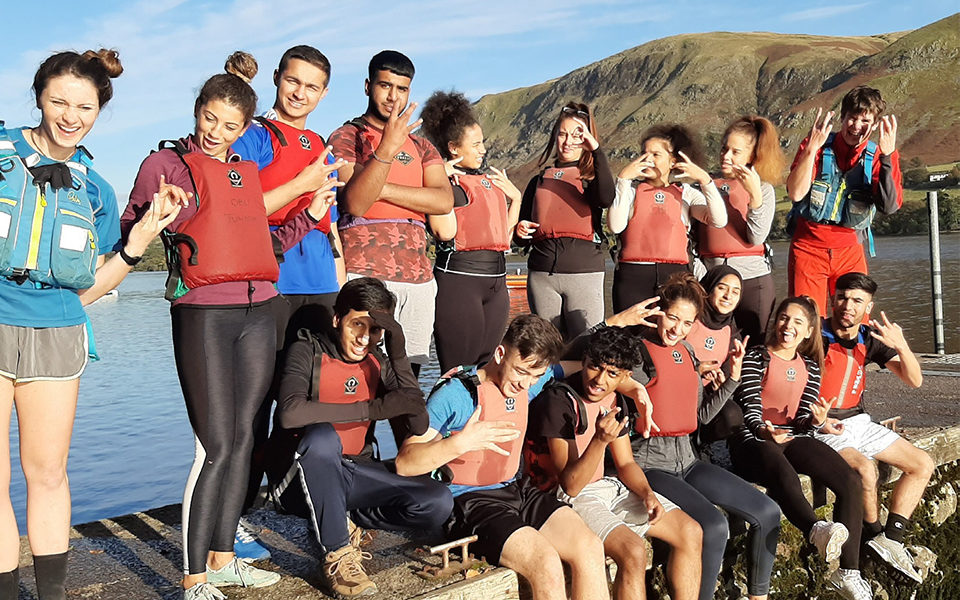
Further Reading
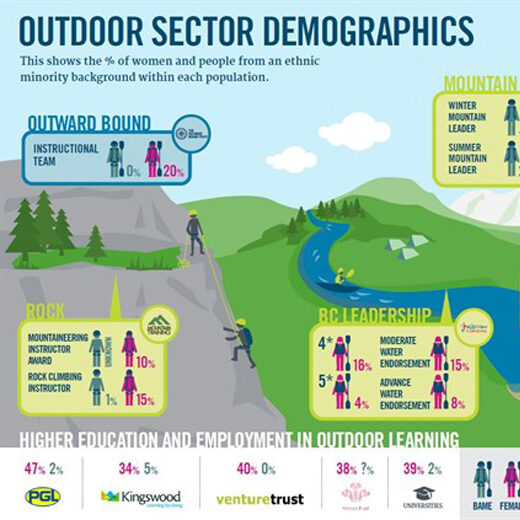
Diversity in the outdoors
29 August 18
An update on our strategic project to examine our diversity.
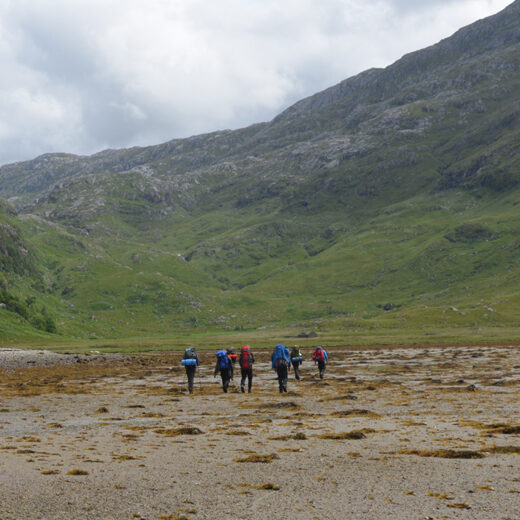
Exploring our Diversity
22 January 18
Creating a diverse team.
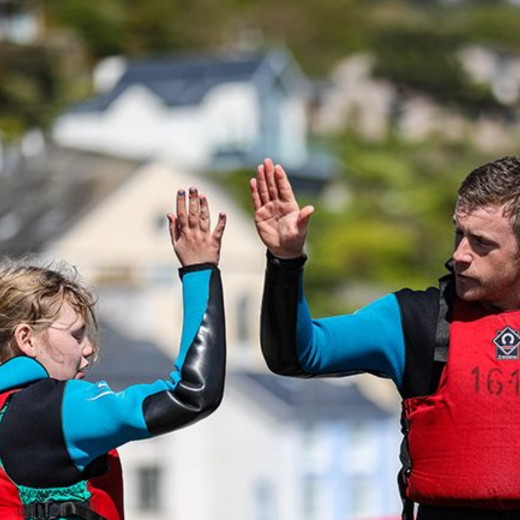
The Importance of Equality at Outward Bo...
12 December 19
Instructor and mentor Nick shares his experience of equality at Outward Bound